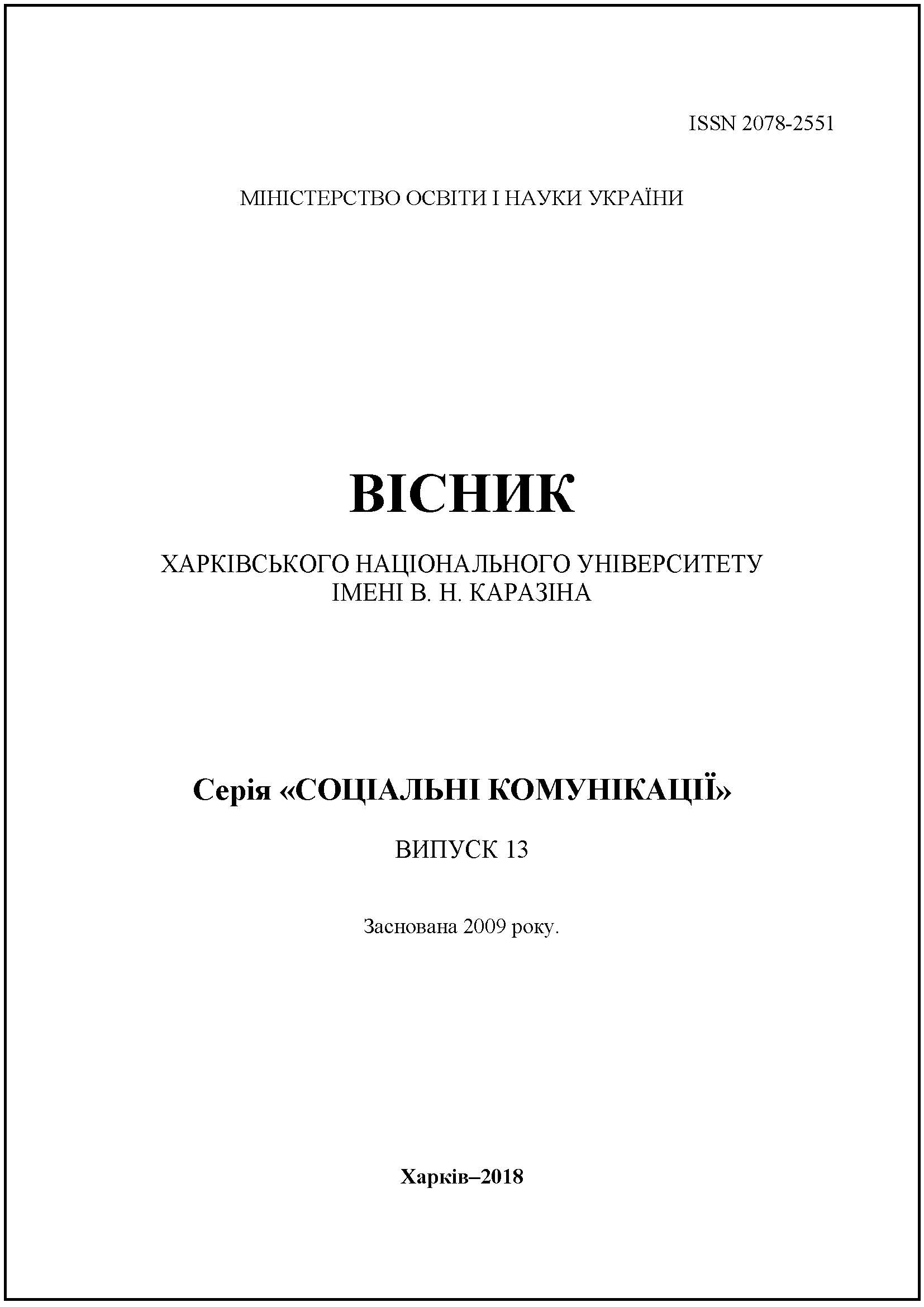Витоки емоцій (екскурс в античність): соціокомунікаційний аспект
Анотація
У статті розглянуто різноманітні трактування такого поняття, як емоції. Також йде мова про похідні поняття. Це такі поняття, як почуття, пристрасті та емоційний інтелект – в історичній ретроспективі. Показано спільний контекст цих понять. Проаналізовано вияв емоцій у поведінці людини. Доведено зв’язок емоцій, уміння спілкуватися та досягнення успіху. Розглянуто еволюцію понять «емоції», «почуття» та «пристрасті». Епікур говорить про відчуття та почуття. Демокріт стверджує, що емоції з розумом регулюють людську поведінку. Сократ ставить розум домінуючим над емоціями, бо вважає емоції руйнівними та не вартими уваги. Платон у певний період то надавав ваги емоціям, то вважав у інший період, що людським життям керує розум, а не емоції. Стоїки дотримувалися думки, що емоції є джерелом нещасть і помилок, а почуття в поєднанні з прагненнями вони називали афектами. У Арістотеля емоції супроводжують процес пізнання у формі афектів і почуттів. Л. да Вінчі та Ф. Шиллер говорили, що почуття в поєднанні з розумом творять людину. Р. Декарт аналізує пристрасті й емоції. Пристрасті у нього є матеріальними і проявляються у переживаннях суб’єкта, а емоції – духовними. Підтверджено, що під час комунікації людина навчається правильно проявляти емоції та почуття, розпізнавати їх в інших, досягати мети, налагодити діалог, обговорити теми, поділитися інформацією, отримати знання, висловити думку, підвищити рівень інтелекту. Описано трактування емоцій у працях філософів і вчених, їхній прояв у почуттях та пристрастях.
Завантаження
Посилання
Арістотель. Нікомахова етика. – К. : Аквілон-Плюс, 2002. – 480 с.
Гоулман Д. Г. Эмоциональный интеллект. Почему он может значить больше, чем IQ / Дэниел Гоулман ; пер. с англ. А. П. Исаевой. – 2-е изд. – М. : Манн, Иванов и Фербер, 2014. – 560 с.
Декарт Р. Сочинения: в 2 т. Т. 1. – М. : Мысль, 1989. – С. 481–572.
Дубровин Д. Психология эмоций: чувства под контролем. – К. : Агенция «Айпио», 2015.
Єрмоленко С. Я., Бибик С. П., Тодор О. Г. Українська мова. Короткий тлумачний словник лінгвістичних термінів / за ред. С. Я. Єрмоленко. – К. : Либідь, 2001. – 224 с.
Изард К. Э. Психология эмоций / Кэррол Э. Изард. – СПб., 2006. – 464 с.
Лемберг Б. Эмоциональный интеллект. Как разум общается с чувствами / Борис Лемберг. – М. : Вектор, 2013. – 192 c.
Міхова А. Г. Емоції і прояви емоцій: історичний екскурс (стресові та стресоподібні стани) / А. Г. Міхова // Наука і освіта. – 2010. – № 3. – С. 95–98.
Платон. Держава / пер. з давньогр. Д. Коваль. – К. : Основи, 2000. – 355 с.
Платон. Федон, Пир, Федр, Парменид / Платон ; общ. ред. А. Ф. Лосева [и др.]; пер. с древнегреч. С. А. Ананьина [и др.]. – М. : Мысль, 1999. – 528 с.
Ekman P. and Davidson R. J. (eds.). The Nature of Emotions: Fundamental Questions. – Oxford, UK : Oxford University Press, 1994.




